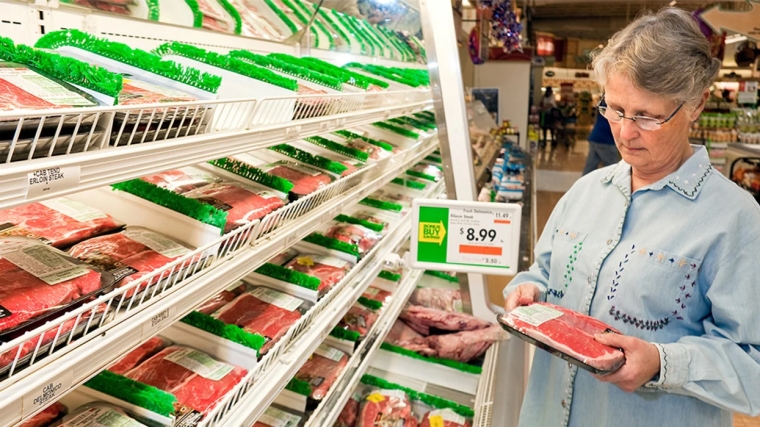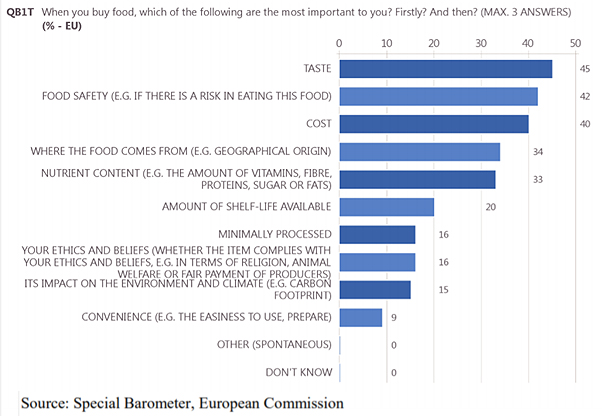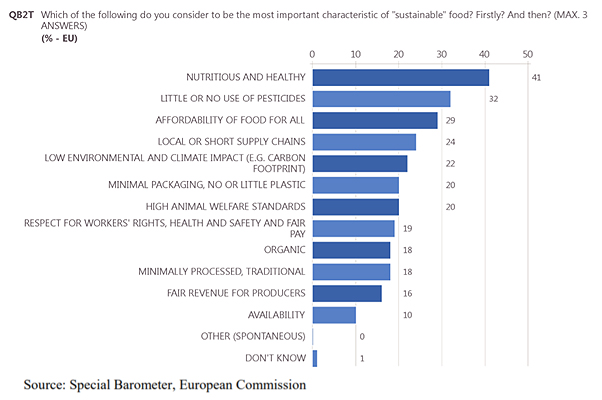
An interesting and positive trend coming through of late has been regarding the sustainable qualities of food being produced in New Zealand.
The way was led with DairyNZ’s report showing how milk products produced in New Zealand have a lower carbon footprint than any of our major competitors. There was a recent profiling of a Bay of Plenty supplier of beef to the MacDonalds chain highlighting the progress they have made in making their farm system more sustainable and the latest addition was the coverage of the ”regenerative wool growing” approach instigated by the merino users, notably The New Zealand Merino Company, Icebreaker, Allbirds and Smartwool.
All of these initiatives are being done to no doubt reassure consumers about the progress being made around sustainability of products and in New Zealand, perhaps more importantly, keeping the public onside in regard to having a “social license ‘to farm. This was a term few were familiar with 10 maybe even 5 years ago but has now woven its way into the core of vernacular when thinking about land use and is a major driver of much of the legislation aimed at farmers.
Perhaps unfortunately, when it comes to European consumers at least, the focus on sustainability is somewhat wasted. A December 2020 study completed by European Commission into EU citizens expectations to food came up with results which may disappoint some of our marketers. As shown in the results graph below; taste, safety and cost stand out as the predominant features’ consumers consider when purchasing food products. (I would presume wool products may show a similar trend in its field although only my impression). Impact upon the environment didn’t appear until 9th out of 10 topics covered.

Sadly, for New Zealand producers, as we can show (as the earlier examples above helped show) that we are likely to be at least as good in an environmental sense to the majority of our competitors.
That the good work being done on farm is not necessarily being valued is not a reason to discontinue the drive to producing more sustainable products, but we need to acknowledge the results and make sure our marketing is directed to those who do place a value on those attributes.
The survey did not show the demographics of those who made up the survey and it may well be that the target audience to many of New Zealand products are not well reflected in the results. At least it would be nice to think so.
The survey did dig down to analyse what respondents considered to be the “most important characteristics of ‘sustainable’ food” and my take is they (the consumer) were more focussed on the ‘sustainability’ of the consumer rather than the natural world. Even when specifically looking at “the most important characteristics of sustainable food” environmental issues didn’t get mentioned until 5 comments down.

A positive slant maybe that consumers take the environmental ‘stewardship’ for granted. However, I suspect that is not the case and people just are not that interested.
An earlier survey (completed in 2019 and published in June 2020). Showed that; price, lack of information and the challenge of identifying sustainable food options as well as their limited availability were the main perceived barriers to sustainable eating. Judging by the red meat companies branding New Zealand companies still are working hard to get the message through to consumers. But the battle will not be won in the short term.
Even within New Zealand one just has to look at the amount of cheap, shed-intensively raised pork that is imported into the country and chicken raised in similar techniques to realise that to consumers, price is a major driver. Although on both graphs food cost ranks third behind taste and safety, taste and safety are by and large taken for granted when food is purchased from a reputable retailer leaving cost as next major consideration on whether or not to purchase.
The message to producers could be, do not take consumers preference for granted just because we believe it has been produced in a green environment, for many that is well down the pecking order.
Y Lamb
Select chart tabs
19 Comments
Good article Guy, it reinforces what most farm gate producers already know. Consumers are driven by one thing - price. All the palava about feeding the world's most discerning consumers who will pay a premium has been, by and large, a marketer led smoke screen- they don't. The same goes for CoO - when confronted in person the average consumer here professes hand on heart they would always buy NZ made - the reality in the aisles unfortunately, is they buy what's cheapest as long as the product is of comparable quality.
Agree hook. The fact that 60% of pork sold in NZ is imported, attests that even in NZ, much might be SAID about wanting sustainable, good environmental and animal welfare standards, consumers DONT ACTION what many say and happily buy pork products from countries with lower standards.
Bit like oranges. USA have recently approved streptomycin spray for oranges. How many consumers actually consider anything other than price when buying food. Taste is likely to be a consideration for those who can afford it.
It's reality isn't it, and to be fair it is not really the consumers fault. If the only information available to a consumer is price, what will they act on?
Try and make an informed decision when the only information you have is "Oranges $3.99kg"
You don't know what country, and even if you did you wouldn't know what area/farm its from, let alone the specific attributes/values/processes of that farm.
Now factor in the lies marketing, the generic "Made from local and imported ingredients", the "5*" health tick (but it is relative to the specific product in question), and you really have to think... what else would you expect?
I guess we can always resort to buying local? Now, should that be the local retailer who imports from China, or the local drop shipper from CHina? or the local farmer using slave migrant labour?
So many choices?
Most unprocessed food is labelled quite clearly where it was produced - Californian oranges, Australian beef, Italian tomatoes etc. Processed food, I agree, is trickier. Some effort is required but the issue at hand is consumers in general say one thing and do another. If consumers want to demand sustainability and humane levels of animal welfare it really behoves them to educate themselves and support the producers who are trying or alternatively be honest and say they don't really care.
I disagree, particularly with meat. It is only marketed as being from somewhere if that is beneficial. It is not labelled otherwise. I am yet to see a label that states "Chinese Pork"?
Also I have seen many things in produce with signage such as "Satsuma Mandarins - From NZ or Australia"
As I said - education is key. If it's not labelled as NZ pork it WILL be imported. If there is confusion or ambiguity regarding labelling you have two choices - ask the relevant dept manager or don't buy. Seasonality is also a pretty good guide.
BTW we don't import Chinese pork after their ASF outbreak but we do import a lot from the EU.
I agree, education is paramount. Unfortunately I don't think it is as simple as made out. We are trying to teach people how to spot a fake/trick/lie/untruth.
I can tell a person what you have rightly said "If not specifically NZ, then it is imported" but from where/with what conditions/chemicals/processes. Because we all know there is a big difference between a intensively Tortured farmed animal in China v an Organic small holding in Wales.
I can also tell a person to buy free range, but that means different things in different places. Take eggs, Free range often bares no relation to what a consumer thinks or in some cases is just outright lies.
To be honest, in my household it is a simple process. Buy/not buy. If buy - get cheapest. The ethical/moral/health decision is made at the first step before price is even noted. I think this is where the survey is lacking. It is only picking those that do "buy". I am sure if they looked at the actual data (eg onecard/flybuys) that the supermarkets hold, they would get a lot better insight into the consumers mindset. For example, they would see that Bacon went from a fortnightly purchase to a monthly, to a once/twice a year.
Noncents, for a starter you're mixing a lot of variables into one statement. The article was purely about the fact that a significant driver of people's purchasing decisions revolves around price - despite what their professed leanings may be. You're example of free range eggs is a good one - no one is comfortable with the conditions hens are raised in, in traditional "battery farms" (imv it's abhorrent). The fact is the resultant eggs are cheaper so people support battery farming because they are cheap suppliers, even though they disagree with the farming method. The same goes for pork - NZs pork is ethically produced (as denoted by the SPCA mark - the blue tick) but is slightly more expensive and thus people continue to purchase imported pork. The purchase of veal (not so prevalent here) relies on the slaughter of surplus calves (a total waste - again imv). People don't like to see 4 day old calves slaughtered but they still buy veal. Unfortunately price rules, as you've indicated - something consumers (in general) need to admit, accept and think about.
So people want nutritious food and cheap food but they also want so called sustainable food, no pesticides probably against synthetic fert etc. Who in their right mind would bother trying to produce such a product for no profit?
What consumers think what is important is irrelevant.
I concluded from the charts consumers firstly. want a good taste and if sustainability was mentioned they wanted the food to be nutritious.
Price or affordability was a distant third.
However, they possibly don’t care and are just attracted to the specials.
Have a look at the first chart - price as a driver was only 5% behind taste concerns, hardly distant
In that case consumers consider a range of the criteria, one of which is price may be a fair statement.
Have a closer look at the charts - respondents were limited to 3 answers. The vast majority listed taste - i.e. eating experience, food safety (a bit ambiguous) and price as their 3 main drivers
Surveys of stated preferences typically over-estimate people's willingness to pay for sustainability, and often by a large amount. I tend to ignore those surveys. The real good oil comes from behavioural studies of what they actually do and then trying to work out the drivers. When I was in China, I always liked to spend hours in supermarkets watching what was actually going into the supermarket trolleys (revealed preferences). Here in NZ I don't do much supermarket shopping, but when I do I also learn a lot at times just looking at what different people rock up with to the checkout. I continue to be amazed.
KeithW
And given that, at least for the supermart duopolists, POS data is warehoused on a very tight cycle, what consumers Actually buy is well known to those with access to that data, within hours if not minutes......One only has to use one of their online shopping pages to realise that your own preferences and shopping history alter the pages displayed to you, the suggestions offered, and even the pricing.....
Surveys, compared to this cascade of near-real-time data, are junk....
I'm going to go out on a limb but as far as I'm concerned most things are about personal responsibility. The recent headline about a child being bitten is a case in point - young child/ nervous dog/ pisspoor parents.
I personally know Mr Dietricht and he'd struggle to count past 10 with his shoes on. Shame the dog had to give it's life because a mullet like Dietrich couldn't exercise a bit of parental control.
Definitely a related matter in that most people have zero understanding of animal behavior or animals generally. One of our kids got bit by a dog as a young'un, she'd been told not to go near it and why (she was a stranger at the dogs home) the fact it was little was irrelevant. Lucky no real damage, definitely no sympathy.
One of the things to remember is that the "consumers" is in fact the supermarket. They have a huge say in what the purchaser takes from the self, who often only think it's them making the decision.
Excellent article Guy. I am becoming increasingly frustrated by so called 'thought leaders' and politicians telling us farmers to do stuff - because 'the export markets demand it' without ever presenting any market research to back up their edicts. Notwithstanding the importance of our contributions to improving waterways, biodiversity etc - this article shows we cannot lose sight of an even more important attribute of NZ farming - production efficiency, so that we can continue to produce food which is cost-effective and competitive with heavily subsidized Northern Hemisphere food. I hope Minister's Parker and Shaw read your article.

We welcome your comments below. If you are not already registered, please register to comment
Remember we welcome robust, respectful and insightful debate. We don't welcome abusive or defamatory comments and will de-register those repeatedly making such comments. Our current comment policy is here.